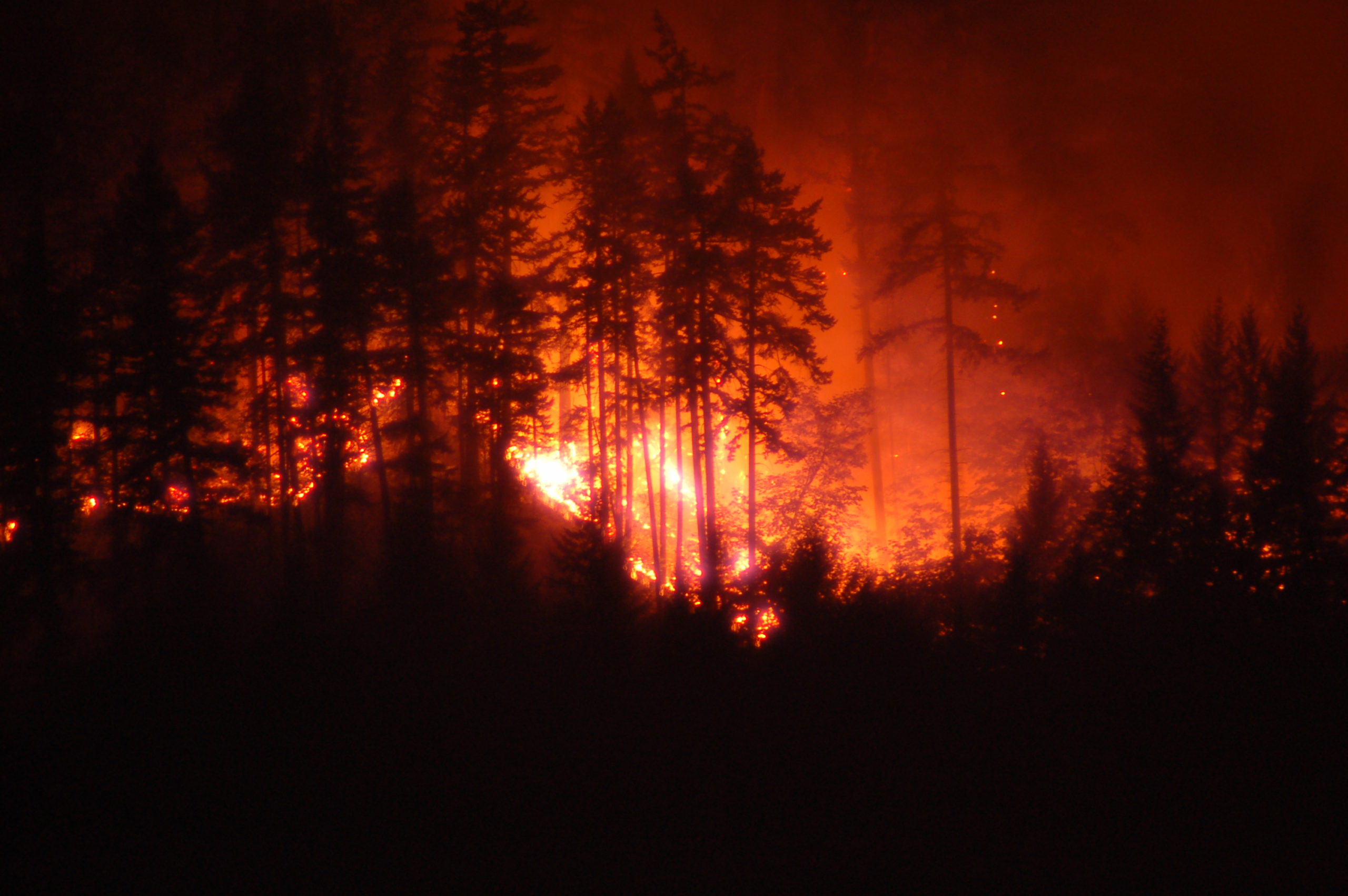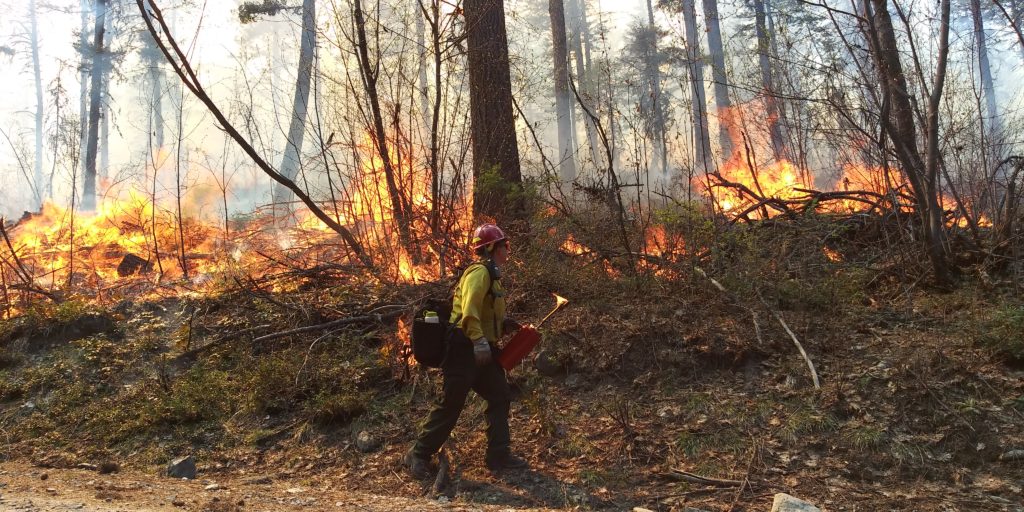
Wildfire
Wildfire is a natural part of Washington’s forest ecosystems. Indigenous people have used fire to manage these forests since time immemorial, but 100 years of fire suppression driven by misinformed forest policy and management has altered the landscape. Combined with hotter and drier summers resulting from accelerated climate change, this legacy of fire suppression has led to more frequent and larger scale wildfires.
Preserving the role of fire in the region’s forests requires a delicate balance of human and ecosystem health considerations. We are working to ensure that development in the wildland-urban interface (WUI) — geographic areas where human development meets or intermixes with wildland vegetation like forests or grasslands — minimizes wildfire risk and that people have resources to make their homes and communities more resilient. Our work on resilience is particularly focused on overburdened communities who are most impacted by the health effects of smoke and who are more vulnerable to displacement and losses from wildfire. At the same time, we advocate for improved forest health through prescribed fire and strategic fuel reduction treatments designed to restore ecological resilience. We also seek to elevate and learn from traditional practices of Native Nations and indigenous knowledge.
We are engaging with partners including Tribal governments, environmental organizations, grassroots organizations, local governments, and wildfire experts to advocate for state-level policy to support wildfire resilience and the ecological restoration of wildfire-adapted ecosystems.

photo courtesy of U.S. Forest Service
